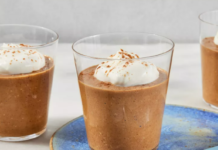Are you nutty about nuts? Do you know the difference between a nut and a seed? Are all nuts equal? Increasingly we hear how good nuts and seeds are for us, and are urged to add them to salads, smoothies and breakfast cereals. But why?
For starters, a seed is just that: A seed — the start of a plant. Inside seeds is endosperm, a rich source of nutrients for what will be the emergent plant.Many nuts, including hazelnuts, acorns and chestnuts, are the edible kernels of fruits, (we know — it gets confusing), the flesh of which we discard.
But not all nuts are true nuts: Brazil nuts, almonds and cashews are the seeds of fruits.
To add to the confusion, peanuts are legumes, which means they are more closely related to peas than to, say, hazelnuts.
Turmeric, beans, chia seeds: Superfoods, their health benefits for weight loss, boosting immunity, and more, and how to add them to your diet
Whether a seed, fruit or legume, all these delicious treats are good for us. Hong Kong-based holistic nutritionist Sandra Carvajal gives several reasons why
Nuts are nutrient dense foods that help us feel fuller for longer.They are rich in minerals that are essential for our bodily functions.
They are an excellent source of healthy fats (mono- and polyunsaturated fats) which makes them good for heart health and an aid to lowering cholesterol.They are high in antioxidants that help fight inflammation.
A handful of nuts or seeds can deliver a powerful punch, with high amounts of protein, fibre, vitamins, calcium and omega-3 oils.Ms Carvajal says that while nuts and seeds have similar macronutrient content (protein, carbohydrate and fat), they differ in micronutrient content (minerals and vitamins).













